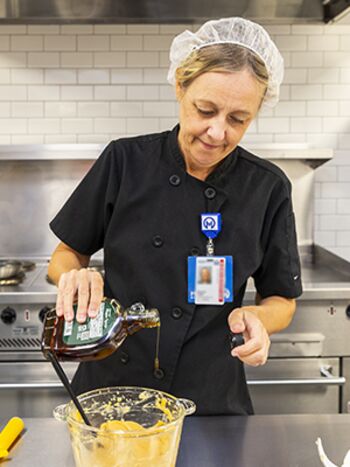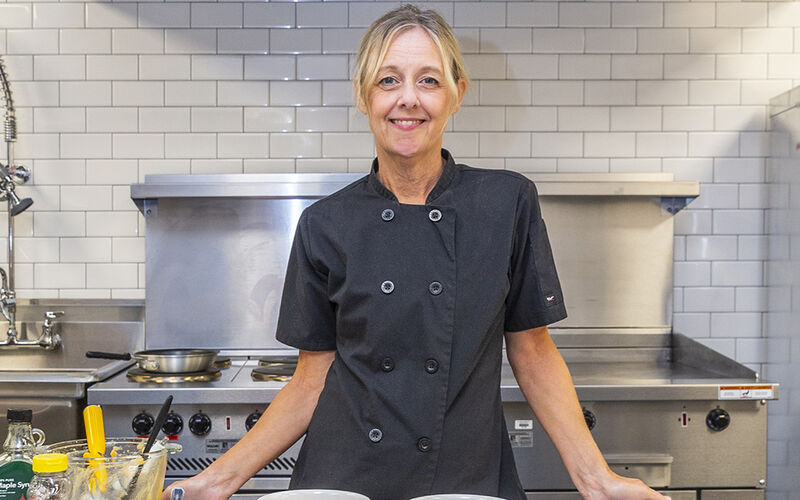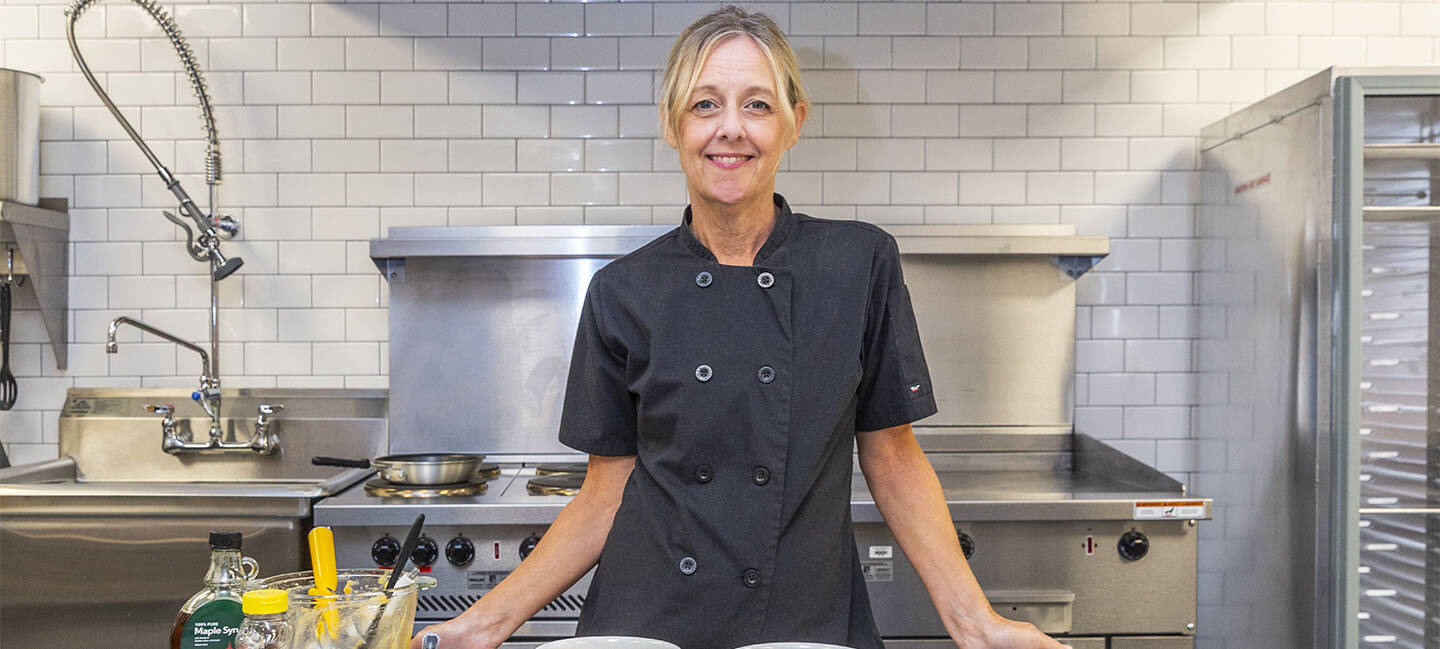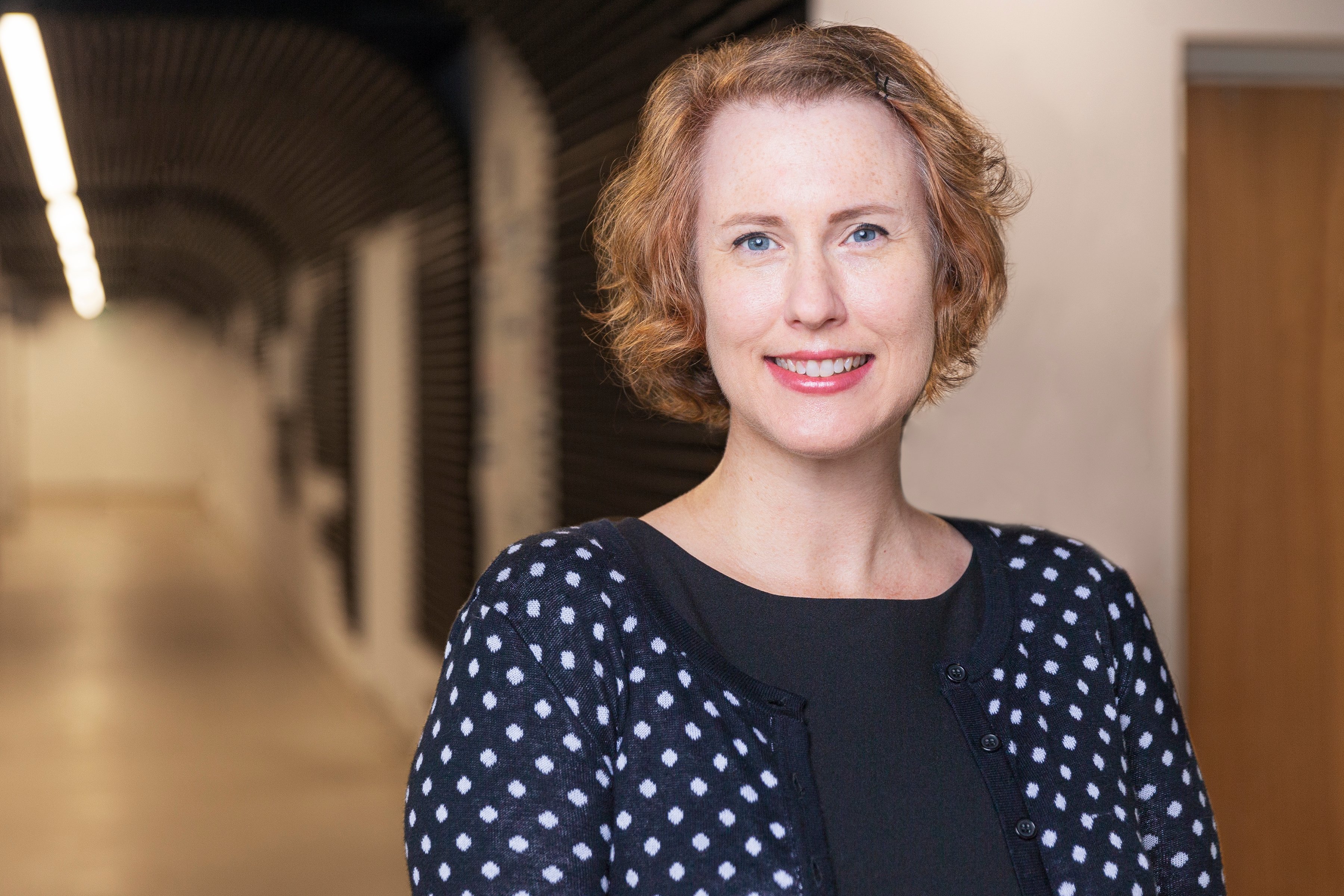New Moffitt Chef Is Cooking Toward a Cure
In the cutting-edge Population Engagement and Research Laboratory, scientists are studying the effects of diet, exercise, smoking cessation and other lifestyle measures on cancer prevention, treatment and survivorship. In fall 2024, a new type of professional joined the powerful PEARL research team. Chef Sarah Krieger began working in Moffitt Cancer Center’s research kitchen alongside Sylvia Crowder, PhD, on a new trial studying the feasibility and acceptability of a ketogenic diet on patients receiving chimeric antigen receptor therapy. This study will be a key milestone in understanding how the keto diet can complement cancer treatment plans. The addition of Krieger’s cooking prowess makes Moffitt one of only three facilities in the nation poised to do this type of dietary research.
What made you want to become a chef and dietitian?
Many things. When I was in high school, I had a lot of gastrointestinal issues, and I ended up going to a GI specialist. My mom took me, and he gave me this list of foods, and I didn't like anything on that list. He didn’t even ask me what I liked to eat. Then, on the culinary side, I worked in food services at a nursing home for five years, from age 15 to 20. I was thinking about becoming a chef, but then a dietitian came in one day to sign off on the menus, and I knew that’s what I wanted to do. So I majored in dietetics and minored in food service management. I worked as a registered dietitian nutritionist and then branched out into work as a personal chef.
Do you have a personal tie to cancer that drew you to this job?
I’ve been a personal chef off and on since 1999. I had gotten into weight management. People would hire me to prepare meals so they would lose weight. Then somebody reached out and asked if I could make meals for their sister who had uterine cancer and was going to start chemo. I said absolutely. So when you’re a personal chef, you go into the person’s home, you do a screening, you buy all the food, you prepare the meals, and you get to know the person and get tied to the family. I cooked for this client for five years. Originally, she was expected to live for two years, and she lived for five — with me cooking for her up until the last six weeks. So her quality of life was good, and she was awesome. She passed at the end of 2019, and I get emotional thinking about it.

Krieger wants to help improve patients' quality of life by making sure they are eating their best.
How has your previous experience prepared you for this role?
I’ve been a dietitian for 28 years, and I have a master’s in public health from the University of South Florida. I have collaborated with researchers in this type of work at other universities. In cooking for my client with cancer and another client with Lyme disease, I got a lot of experience dealing with food sensitivities, allergies and challenges with texture. I cooked full time for both of these clients, and I would regularly check in to learn about the treatment side effects and how we could adjust to help with gastrointestinal distress.
As a chef, how do you help people who may not feel like eating?
Every time we eat, we make decisions with our mind. We look at it first, then we smell it and then the taste. So the plating is super critical. If someone’s not feeling well, they’re like “that doesn’t look good” and they won’t eat it. But there are all sorts of things to do with color, shapes and how close food is to the edge of the bowl or the plate. We want to deliver meals that patients will see and want to eat.
What is your favorite thing about working at Moffitt?
When I was cooking as a personal chef, people would tell me things like: “You know what I read? Sugar makes it worse.” So I’d start looking into the research. So what an honor it is to actually do this, to be able to tell people, “yeah, this actually works,” because right now, it’s all anecdotal.
What’s your hope for how you will help patients?
In my career, it is all about quality of life. So whatever side effects or conditions you’re given, how can we improve our quality of life? If we’re going to be on this earth, we might as well try to do our best and eat our best. Instead of Ensure or Boost, let’s try to take it up a notch. So that’s my passion, getting the person to the best place possible in whatever journey they’re on.




